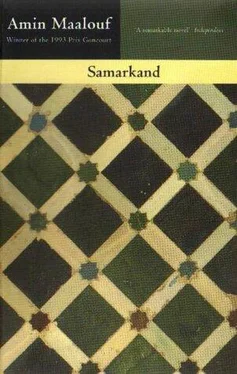Meanwhile, the Tsar had recourse to more brutal methods. In July it was learned that the former Shah had returned, with two of his brothers and at the head of an army of mercenaries, to try and seize power. Had he not been under house arrest in Odessa, with the Russian government’s explicit promise never to allow him to return to Persia? When questioned, the St Petersburg authorities replied that he had slipped out with a false passport and that his armaments had been transported in boxes labelled ‘mineral water’, and that they themselves bore no responsibility for his rebellion. Thus he had left his residence in Odessa and with his men crossed the few hundred miles separating the Ukraine and Persia, boarded a Russian ship with all his armaments, crossed the Caspian Sea and disembarked on the Persian side — all of that without arousing the notice of the Tsar’s government, his army nor the Okhrana, his secret police?
But what use was it to discuss the matter? Above all the fragile Persian democracy had to be prevented from crumbling. Parliament asked Shuster for credit and this time the American did not argue. On the contrary he saw to it that an army was raised within a few days, with the best available equipment and abundant ammunition. He himself suggested that it should be commanded by Ephraim Khan, a brilliant Armenian officer who within three months would succeed in crushing the ex-Shah and pushing him back across the border.
In chancelleries throughout the world it could hardly be believed: had Persia become a modern state? Such rebellions generally dragged on for years. For most observers, both in Teheran and abroad, the response was summed up in a single magic word: Shuster. His role now went far beyond that of simply being Treasurer General. It was he who suggested to parliament that they outlaw the former Shah and plaster ‘Wanted’ posters, as in the Wild West, on the walls of all the cities in the country, offering significant sums to anyone who helped to capture the imperial rebel and his brothers, all of which succeeded in discrediting the deposed monarch in the eyes of the population.
The Tsar was still in a rage. It was now clear to him that his ambitions in Persia would not be satisfied while Shuster was there. He had to be made to leave! An incident had to be created, a large incident. A man was charged with this mission: Pokhitanoff, former Consul in Tabriz and now Consul General in Teheran.
Mission is an unassuming word, for what was, in that context, a plot which was carefully carried out, although without much finesse. Parliament had decided to confiscate the property of the ex-Shah’s two brothers who were leading the rebellion at his side. Commissioned to carry out the sentence, as Treasurer General, Shuster wanted to do everything with the utmost legality. The principal property concerned, situated not far from the Atabak Palace, belonged to the Imperial Prince who went by the name ‘Radiance of the Sultanate’; the American sent a detachment of the police and civil servants there, armed with warrants. They found themselves face to face with Cossacks accompanied by Russian consular officers who forbade the police to enter the property, threatening to use force if they did not speedily retrace their steps.
When told of the outcome, Shuster sent one of his aides over to the Russian legation. He was received by Pokhitanoff who, in an aggressive tone of voice, gave him the following explanation: The mother of Prince ‘Radiance of the Sultanate’ had written to the Tsar and Tsarina to claim their protection, which was generously accorded.
The American could not believe his ears: It was unjust that foreigners, he said, should enjoy the privilege of immunity in Persia and that the assassins of a Persian minister could not be judged because they were the Tsar’s subjects — but it was a time-honoured rule and difficult to change; however Persians overnight could place their property under the protection of a foreign monarch to deflect the laws of their own country — that was a novel and extraordinary process. Shuster did not want to resign himself to that. He gave an order to the police to go and take possession of the properties in question, without the use of violence but with determination. This time Pokhitanoff allowed it. He had created the incident. His mission was accomplished.
The reaction was not slow in coming. A communiqué was published in St Petersburg stating that what had happened amounted to an act of aggression against Russia and an insult to the Tsar and Tsarina. They were demanding an official apology from the Teheran government. In a panic, the Persian Prime Minister asked the British for advice; the Foreign Office replied that the Tsar was not playing games, that he had amassed troops in Baku, that he was preparing to invade Persia and that it would be wise to accept the ultimatum.
Thus, on 24 November 1911, the Persian Minister for Foreign Affairs, with a heavy heart, presented himself at the Russian Delegation and shook hands fawningly with the Minister Plenipotentiary as he pronounced these words:
‘Your Excellency, my government has charged me with presenting to you, on its behalf, apologies for the insult which consular officials of your government have suffered.’
Still shaking the minister’s hand, the Tsar’s representative retorted:
‘Your apologies are accepted as a response to our first ultimatum, however I must inform you that a second ultimatum is in preparation at St Petersburg. I will advise you of its contents as soon as it reaches me.’
He kept his promise. Five days later, on 29 November at mid-day, the diplomat presented the Minister of Foreign Affairs with the text of the new ultimatum, adding orally that it had already received London’s approval and that it had to be satisfied within forty-eight hours.
Point one: dismiss Morgan Shuster.
Point two: never again employ a foreign expert without obtaining beforehand the consent of the Russian and British legations.
In the Parliament building the seventy-six deputies were waiting, some of them wearing turbans, others fezzes or hats; some of the most militant ‘sons of Adam’ were even dressed in European style. At eleven o’clock the Prime Minister mounted the dais, as if it were a scaffold, and with a stifled voice he read out the text of the ultimatum and then mentioned London’s support for the Tsar before announcing his government’s decision not to resist but to accept the ultimatum and to dismiss the American — in a word, to return to the tutelage of the Powers rather than to be crushed underfoot by them. In order to try and avoid the worst he needed a clear mandate; he therefore asked for a show of confidence, reminding the deputies that the ultimatum would expire at mid-day, that they had a finite amount of time and that discussions could not drag on. During the whole of his speech he had kept glancing worriedly towards the visitors’ gallery where sat enthroned Mr Pokhitanoff whom none had dared to forbid entering.
When the Prime Minister went back to his seat, there were neither boos nor applause but only a deafening, overwhelming and oppressive silence. Then a venerable sayyid arose, a descendant of the Prophet and modernist from the outset who had always given enthusiastic support to Shuster’s mission. His speech was short:
‘Perhaps it is the will of God that our freedom and sovereignty should be snatched away by force. But we will not abandon those principles of our own accord.’
There was silence again. Then another speech in the same vein and just as short. Mr Pokhitanoff made a great show of looking at his watch. The Prime Minister saw him and in his turn he pulled out his fob watch and held it up to read the time. It was twenty to twelve. He became panicky and tapped the ground with his cane, demanding that they move on to a vote. Four deputies hurriedly withdrew on various pretexts: the seventy-two remaining all said ‘no’. No to the Tsar’s ultimatum. No to Shuster’s departure and no to the government’s stance. By this fact, the Prime Minister was considered to have resigned and he withdrew with his whole cabinet. Pokhitanoff also arose; the text he had to cable to St Petersburg had already been drafted.
Читать дальше












